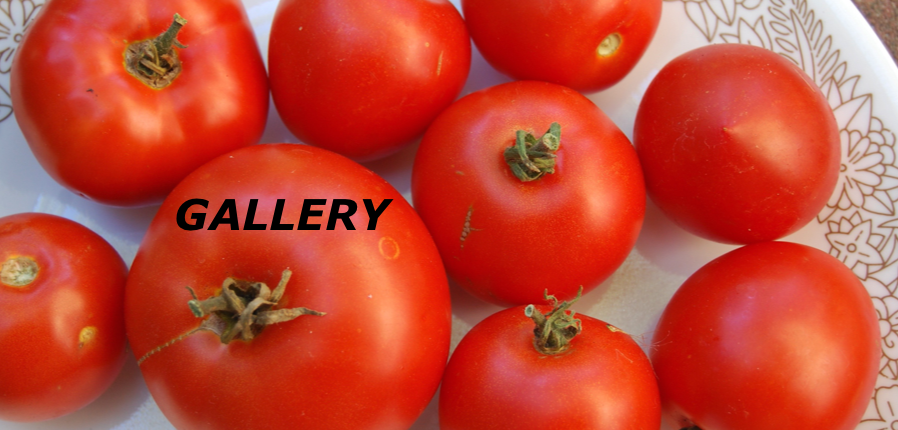
 |
 |
 |
 |
 |
 |
New Pictures of Sustainability
|
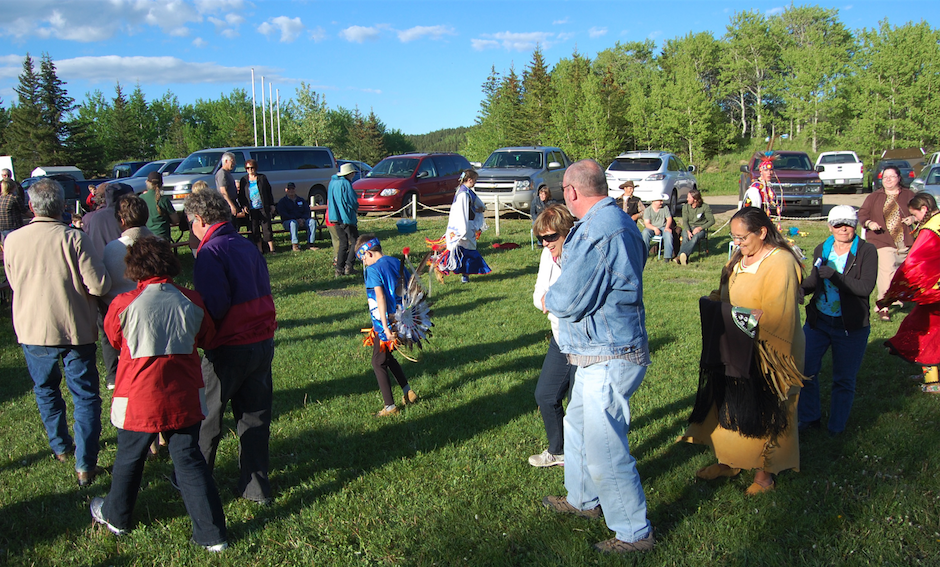 |
The Round Dance involves the whole community. The simple steps can be quickly learned by anyone, although practice can give an artistic flair.
Fun, involvement and fresh air! These are the traditional elements of festivals. We strive to include them as part of Transition activities, too. |
|
|
|
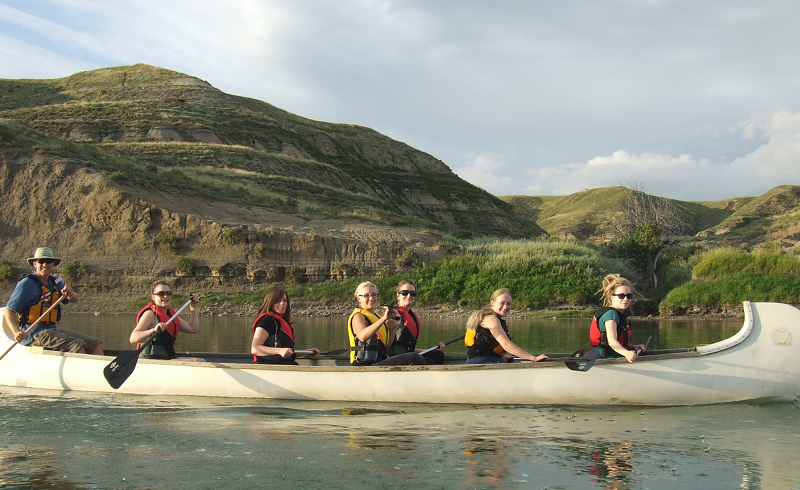 |
Peter suggests that Medicine Hat should celebrate the South Saskatchewan River, and the fine quality of life it brings. Whether people paddle the giant voyageur canoe or inflatable rafts, they can enjoy seeing the city from a different vantage point.
|
|
|
|
 |
Soil is more than just dirt. Soil's active ingredient is the wealth of micro-animals squirming and wiggling under the surface. Hundreds of species of insect, arthropod, bacteria and fungus eat dead plant material and each other. At each stage, more nutrients are made available for our garden plants.
One important way to support this underground life is to protect the soil with a blanket of mulch. Dead leaves, grass clippings, finished compost or any other organic material will protect the soil from rapid temperature change while keeping it moist. I spread leaves over the vegetable beds when rain is predicted, so they will be settled down before they blow away. |
|
|
|
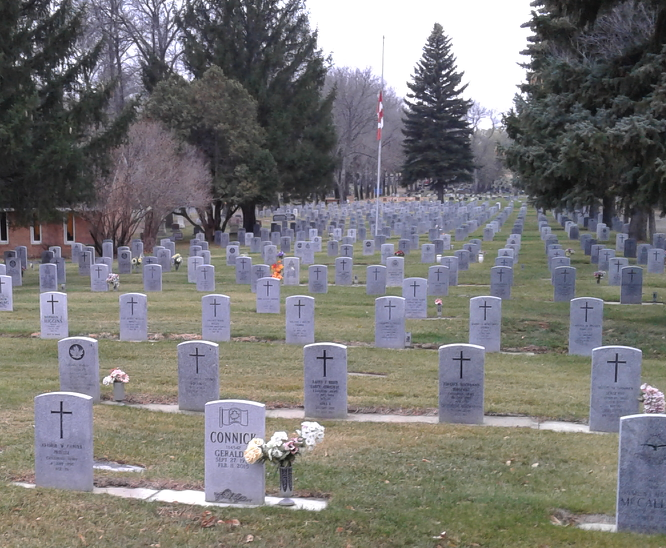 |
Sustainability includes valuing the community spirit that built Medicine Hat. What can better illustrate this than the graves of some of the many young men and women who fought to preserve our country?
The Field of Honour in Hillside Cemetery still grows, although slower than previously. A cool, dull day in November is appropriate for the sombre memory. |
|
|
|
 |
Police Point Nature Centre provides thoughts on how to ensure our insect friends can survive the winter in comfort. To summarize: leave your garden messy.
You can get more details by viewing the temporary exhibit at the nature centre, Tuesday to Sunday, 9 am - 4:30 pm.
|
|
|
|
 |
Drying clothes outside seems to be the natural thing to do. It is free, smells great and the sunshine kills any germs. No need to buy chemicals that claim to make your laundry smell almost as good as if you dried it outside.
Although this saves money, it isn't an economic activity. If everyone used a clothes line, our use of electricity would decline, but solar energy's share of the energy mix would not go up. Our Gross Domestic Product would decline, as well. This simple example shows why measuring GDP is a poor way to monitor our society. Who would believe that doing laundry could be controversial? Using a clothes line goes against the rules in some of Medicine Hat's communities with landscaping restrictions. |
|
|
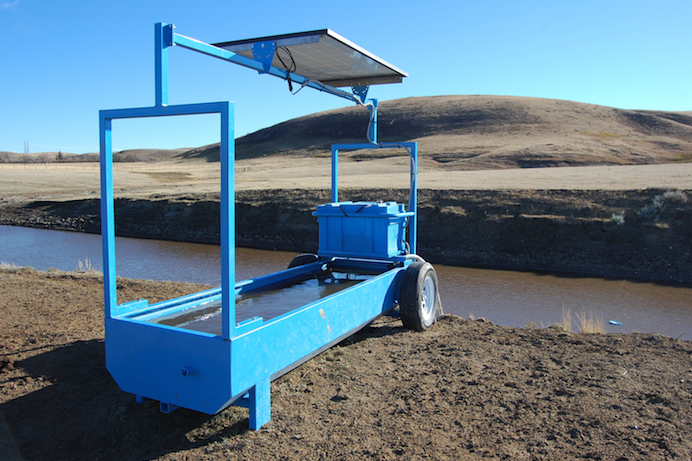 |
Given the chance, cattle greatly prefer to drink out of a trough. Taste tests (really!) show that they don't really like dugout water, with the usual addition of nutrients (yuck!). And when they drink more, they eat more and gain weight faster. Ranchers can increase their production by a whopping 10% just by pumping water into a trough.
This pump runs on solar power (note the large battery case, and the wheels allow it to change pastures with the cattle. If the pump stops for some reason, they can always return to the unfenced dugout. But the trampled soil shows they spend a lot of time drinking there. The water source also benefits from less trampling. Vegetation can grow, keeping the water even cleaner while encouraging wildlife. |
| Photo by Rob Gardner
|
|

 
 |
Pollinating insects come in all sizes and shapes. Alberta has over 60 species of bumble bees alone. Many are particularly adapted to pollinate specific plants, or groups of plants.
Spend a few minutes watching a patch of flowers, and see how many kinds of insect visit. Wild flowers are often more attractive than domestic varieties. Some tame flowers have been selected just for appearance, and the ability to produce aroma and nectar has been reduced. Planting a few wildflowers, or flowers like herbs that have not been selected for their appearance, can significantly increase the number of native pollinators. Contact Transition Medicine Hat if you would like a few native flower seeds to grow in your yard. |
| Photo by Rob Gardner
|
|
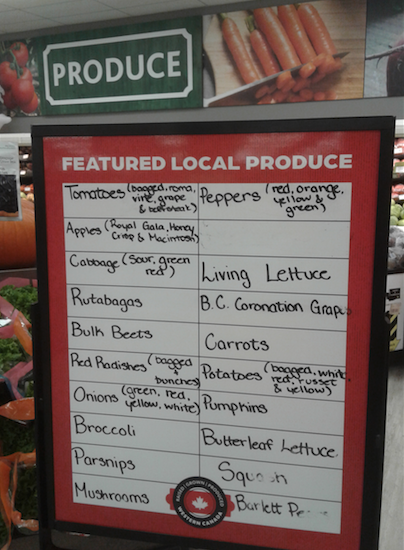 |
South Country Co-op on 13 Avenue SE makes a point of highlighting the vegetables that they source locally.
The definition of "local" varies with the item. The B.C. apples are considered local, while the cabbage was grown in Redcliff.
|
| Photos by Rob Gardner
|
|
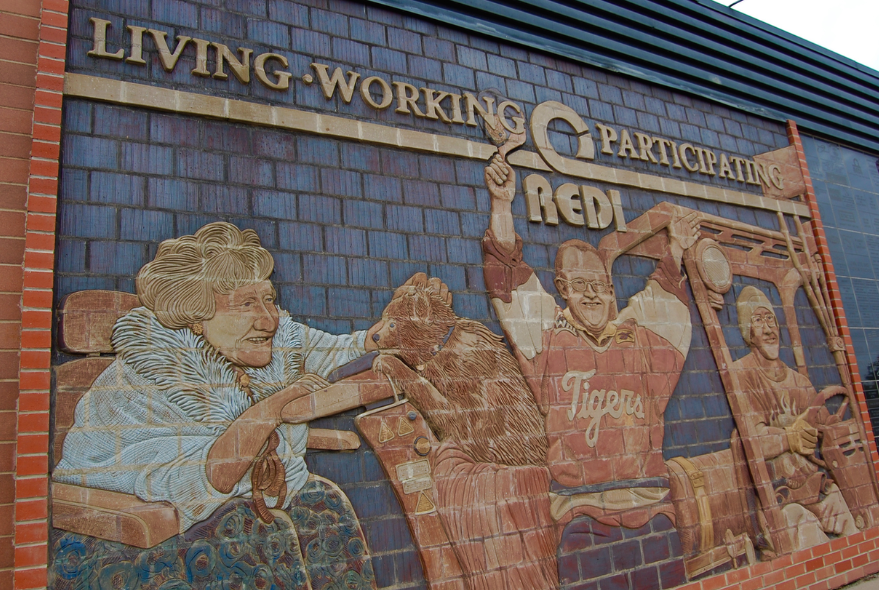 |
REDI fosters independence and helps to make space for people living with disabilities to live a full and rich life. Created in 1952, this organization strived to include everyone in our community. When REDI had trouble finding meaningful work and volunteer opportunities for its clients, it started its own company to provide employment. This organization, including the bottle depot, became one of Alberta's earliest social enterprises. |
|
|
Next Page |
| Last modified November 20, 2020 |
